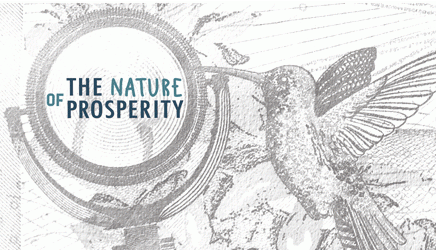
As a leader, where do you go for alternative learnings, ideas, thoughts to stretch yourself ? Where do you go beyond your known knowns and known unknowns ?
As for me, I’m intensely curious, a voracious learner.
An example was that yesterday I went to an event hosted by the Centre for the Understanding of Sustainable Prosperity, otherwise known as CUSP. The event was an afternoon of panel discussions plus a keynote, titled :
NATURE OF PROSPERITY: ETHICS AND UTOPIAS
Last November I went to the Kilkenomics Economics and Comedy Festival (written about often on this blog, I loved it.. and the “craic” !).
Both featured brilliant thinkers and both events could not have been more different.
Kilkenomics, at the core, is centred around traditional economic theory and principles, about how can we do capitalism better (to wildly simplify).
The Ethics and Utopias event was, again to simplify, about Sustainable Prosperity, which, as the event notes define: “involves a more wholesale rethinking of the nature of value, human flourishing and our conception of the future“.
In my experience as a leader and working with leaders, I see value in all the arguments made, which for regular readers is unsurprising. I am a ‘recovering’ Chartered Accountant, so get the numbers and economic principles, although on the flipside, I do have some esoteric thoughts, and one note I made during the event was :
“Fascinating conversation about poetic language to express ideas. Sentio ergo sum. Rational language cannot create transcendent shifts of belief.”
I do believe that we need both a foundation of understanding of numbers and core principles, but also that our world has moved to a point of “progress” (quotes intentional) that alternative models are the future.
Oh, and perhaps other than me, the only bridge between these events is Kate Raworth, who also lectured for CUSP recently on her alternative model, Doughnut Economics.
To develop new models for sustainable prosperity not based on “groupthink”, we need really open and brave dialogue. I applaud CUSP for creating this through their “nature of prosperity dialogue” series.
My key learning from this event ? From one of the speakers, Ruth Levitas :
“Utopias give you a space in which you can imagine radically different systems”
